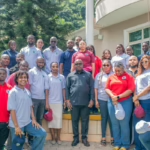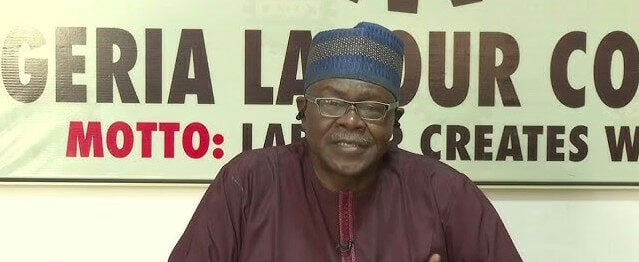In the face of ongoing economic hardships and escalating living expenses, how viable is the current N70,000 minimum wage for the typical Nigerian employee?
Many workers are struggling to make ends meet, surviving on extremely tight budgets and facing daily uncertainties. Life has become a relentless challenge filled with hardship and instability.
To understand the context, the N70,000 minimum wage was agreed upon under specific conditions. At that time, it was understood that tariffs and utility fees would remain stable. The wage review period was shortened from five years to three, and the government committed to introducing a fleet of Compressed Natural Gas (CNG) buses to replace petrol and diesel vehicles, primarily serving unions, workers, and other vital sectors.
This minimum wage was intended as part of a comprehensive relief strategy. However, shortly after its implementation, the government increased tariffs in the petroleum and electricity sectors, with electricity costs alone surging by over 250%. These steep increases drastically shifted the economic environment, raising production expenses, causing business closures, and leading to widespread unemployment. Concurrently, school fees, transportation, and general living costs skyrocketed.
As a result, the N70,000 minimum wage has lost its purchasing power. Today, it barely covers basic food items like a bag of rice or beans. Nigerian workers are facing deeper financial distress, prompting urgent calls for the government to reassess and increase the minimum wage.
What stance has the government taken regarding the demand to revisit and adjust the ₦70,000 minimum wage?
The government maintains that consultations are ongoing. However, it is important to remember that the wage review is scheduled every three years.
Since the three-year period has not yet passed, is the push for a wage review premature? Or is this more akin to a temporary wage adjustment, similar to the palliative wage increase following the removal of the petrol subsidy?
We are not breaking any rules. The conditions under which the ₦70,000 minimum wage was accepted included certain guarantees. When one party breaches a fundamental term unilaterally, the other party is no longer obligated to honor the agreement. This is a well-established legal principle.
Therefore, our actions are fully lawful. It is crucial to distinguish between a national minimum wage and a wage review-they are related but not identical concepts.
Since the current issue concerns the national minimum wage, we are within our rights to demand an increase beyond ₦70,000. In fact, some states have already raised wages to as much as ₦100,000. The federal government should set the standard, especially given the changed economic conditions.
You mentioned the recent salary reviews for political office holders. What aspects do you find unjust or problematic?
The Revenue Mobilisation Allocation and Fiscal Commission (RMAFC) has proposed significant salary hikes for political office holders despite public opposition. The Commission’s chairman argued that the president earns about a million naira or less, while other public servants earn more.
However, the Constitution does not mandate that the president be the highest-paid individual. Even if the president’s salary is lower, it is unrealistic to compare his expenses to those of the average Nigerian worker. The president does not bear the same personal costs for fuel, rent, or vehicle maintenance.
The reality is that those already enjoying privileges and perks continue to seek greater shares of national wealth, while the impoverished majority are pushed further into hardship.
Whenever workers’ wages are discussed, the government cites limited resources. Yet, when it comes to salaries and benefits for political office holders, funds appear abundant.
Consider the figures: the last wage increase for workers was between 45% and 50%, whereas political office holders received an increase of approximately 800%. Consequently, a university professor earns around ₦500,000, while many politicians, who contribute little, receive millions, excluding undisclosed allowances.
This stark disparity exemplifies raw and harsh inequality.
Some argue that individual states should have the autonomy to negotiate wages based on their financial capabilities. How do you respond to this?
This perspective misses the mark. States already have the liberty to establish their own salary scales. For example, a director’s salary in Anambra differs from a chief’s in Benue, and Kaduna’s pay structure is not the same as Yobe’s. States enjoy this flexibility.
The national minimum wage is not designed to override state salary systems but to establish a baseline that protects the most vulnerable workers who lack bargaining power. Simply put, no Nigerian worker should earn below a certain minimum threshold.
How long is labour prepared to wait for the government to conclude its wage review consultations, and have you proposed a figure you consider reasonable?
We cannot afford to wait indefinitely. The government must act in its enlightened self-interest. A population pushed into poverty only deepens economic woes and ultimately destabilizes governance.
We are advocating not only for a review of the national minimum wage but for wage adjustments across all sectors. Judges and public office holders have had their increases; workers must not be left behind.
Historically, in 2000-2001, President Obasanjo increased wages proactively, without union pressure. This enabled teachers to afford cars, restored workers’ dignity, and positively impacted the economy.
Similarly, during the 2009 recession, President Obama raised wages and supported businesses, leading to nearly a decade of economic growth. Our government should take a cue from such examples.
Given today’s economic conditions, what do you consider a fair minimum wage?
Taking into account rising energy tariffs, fuel prices, and overall living costs, a minimum wage of ₦1 million is justified.
Do you believe the government can realistically sustain a ₦1 million minimum wage?
While I do not have access to detailed government finances, it is evident that the government is financially robust. Monthly allocations from the Federation Account Committee have risen from ₦700 billion to ₦1.3 trillion. In August alone, over ₦2 trillion was distributed. With new taxes coming into effect in January, monthly disbursements could exceed ₦5 trillion.
Affordability is not the issue. The real question is why the government remains wealthy while its citizens endure poverty.
Politicians often claim capital expenditure is more critical than recurrent spending. However, recurrent spending, which directly puts money into people’s hands, is essential for survival. Infrastructure projects are important, but corruption diminishes their value. People must survive to benefit from roads, schools, and other public services.
Therefore, there is no excuse: the government has the resources to pay workers fairly.
Looking ahead to 2026, if the wage review is delayed and new taxes are implemented, how is labour preparing workers?
We are actively educating and mobilizing workers. To be clear, we are not issuing threats. Any plans for strikes or protests will be communicated transparently. For now, our priority is raising awareness about upcoming challenges.
We are informing workers about the new taxes and the increasing financial pressures they will face, including those in the informal sector such as market traders and mechanics. The impact will be widespread. Our goal is to prepare workers mentally and practically.
Finally, what message would you like to convey to the government regarding fair wages for workers?
Our stance remains firm: while government reforms may be well-intentioned, they must prioritize human welfare. Current policies have fostered uncertainty and hardship. The government must act swiftly to ease this burden.
Regarding palliative measures, transparency is essential. The government claims to have enrolled 8.5 million people in the cash transfer program-let the beneficiaries be publicly listed. In developed countries, claims of job creation or household support are backed by verifiable data.
In Nigeria, assertions that millions have been lifted out of poverty lack evidence. Without proof, these are mere statistics, and Nigerians are discerning. The government should cease statistical manipulation and provide concrete evidence.
Our call is clear: the government must treat workers justly, adjust wages to reflect reality, and demonstrate genuine care for its citizens.

















